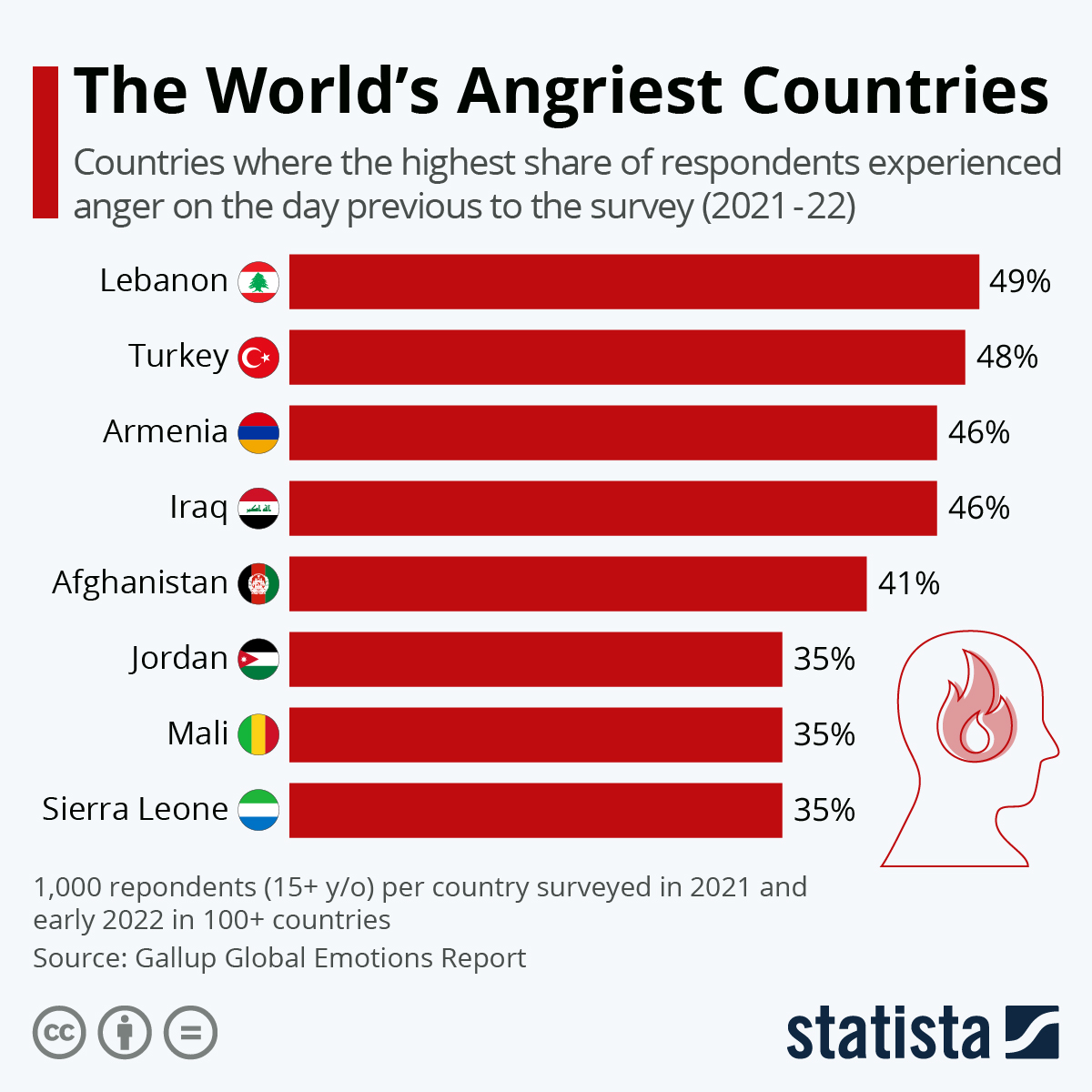Are Muslims the angriest people in the world? Is the stereotype of Islamic extremism fair? Patrick Bet-David expands on the Islamic religion, culture, and stereotypes.
According to a study done by French think tank (Fondapol), Islamist terrorist attacks accounted for 39.1 percent of the lives lost due to terrorism between 1979 and 2019.
According to Statista, the top 5 angriest countries in the world are Middle Eastern countries:
 Why is this the case? The Middle East experienced a century of trauma, here’s why:
Why is this the case? The Middle East experienced a century of trauma, here’s why:
The entire region of the Middle East was under the rule of the Ottoman Empire for 600 years prior to its collapse during World War I. After the collapse:
- The Sykes-Picot Agreement: Secret agreement between Britain and France signed in 1916. The agreement divided the Middle East into spheres of influence for the two countries where Britain would control Iraq and Palestine, while France would control Syria and Lebanon.
- The Balfour Declaration: Statement issued by the British government in 1917. The declaration promised to support the establishment of a Jewish national home in Palestine.
- The League of Nations Mandates: A system of international administration that was created after World War I. The mandates were granted to the victorious powers and gave them responsibility for governing the former Ottoman territories.
The western powers were eager to gain control of the oil reserves in the Middle East which led to the creation of borders that would give them access to the oil. Because these borders did not reflect the ethnic or religious divisions within the region, the separation led to the rise of sectarianism.
Check out the keynote speakers and details for The Vault 2023 and secure your tickets!
Sunni and Shia are the two main branches of Islam, and they have been divided for centuries. The split between Sunni and Shia Muslims dates to the death of the Prophet Muhammad in 632 AD. After Muhammad’s death, there was a disagreement over who should succeed him as leader of the Muslim community. Sunni Muslims believe that the successor should be chosen by the community, while Shia Muslims believe that the successor should be a descendant of Muhammad. This disagreement led to the split between Sunni and Shia Muslims, and it has been a source of instability and conflict ever since.
There has been a major conflict in the Middle East every decade for the last 70 years. The region consistently has the most violence and instability, but is it fair to say that the people of Islam have been dealt an unfortunate hand?
Patrick Bet-David highlights the positive aspects of Islam, why it is the fastest growing religion in the world, and what Christians can learn from Muslims.


















Add comment